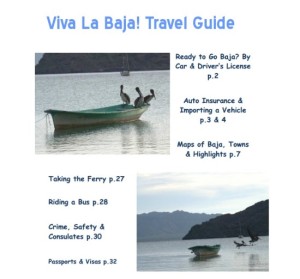
Note: This is Part 2 of this article, you can read Part 1 here: Trials and Travails of an Expat Family in Mexico – Part 1.

I had to reason often. It was a bit humorous in its execution, but the base emotion of the slurs seemed to be coming from a source other than direct interaction. “Was I being naive to think we had integrated into the community?” I wondered.
Should we make this our home base to always return to after embarking on other adventures (travelling had already taken hold of my heart and wasn´t going to be excised anytime soon)? Or should I be making plans to move away, somewhere my son would have greater opportunities for education and extra-curricular activities such as music lessons and sports?
The town had a volunteer-coached and expat-funded local soccer and baseball league but discrimination was present, with him being intentionally taught an incorrect way of doing a skill on more than one occasion such as an arm pulling the bat in an unnatural ‘corrective’ swing.
After a glance was sent my way as I sat observing from the stands the skills training would then revert to the same physiodynamics all the other players were being shown. A little jab at the foreigner who had been welcomed but wasn´t quite welcome – at least not yet.
When situations like this occur I´ve learned to douse the rim of my Margarita glass with another round of salt. It takes time to adjust to a new culture, and for the culture to adjust to you. Keeping expectations reasonably low saves a lot of useless frustration. It is going to be a challenge – but isn´t that precisely what gives the experience its thrill and value?
Sometimes I would reassess and have a little heart-to-heart talk with myself. “Was I doing the wrong thing by putting my son in the position of ‘immigrant’ status and take away the natural advantage he had as a fourth-generation American in the U.S.?” In Mexico preference is always given to a Mexican. There is very little cultural pluralism or path to higher-levels of society for all, such as we have to some regard in the U.S. and our immigrant population.
Yet again, that is my middle-class viewpoint based on my particular holographic-view of American society. Are immigrant and foreign-born children discriminated against in the U.S. and treated poorly at times? Of course they are. That is a reality, it just wasn´t the framework from which I would filter our experiences as an expat family. I had to learn to adjust my vantage point by focusing on the positive.
Daily I would process how fortunate we were to be living in a foreign country and experiencing a lifestyle a lower cost-of-living allowed us to enjoy: Trips throughout the country; a month-long summer school program in art, dance and music (Morelia, Mexico); apartments that always welcomed our six-year old Rat Terrier; regularly eating out at restaurants; days spent at unspoilt beaches swimming and exploring; afternoons at $200 per night hotels jumping-off of man-made cascading waterfalls into the pool below.
Sunshine, sunshine and more sunshine (coming from the rain-drenched Pacific Northwest, that was a huge plus) and last but not least, bilingual/biliterate competency in Spanish language for my son, not me.
The now awesome teen speaks, reads & writes Spanish fluently. He has a love for learning languages that I could never have given him, and a first-hand understanding of culture and the world beyond his years, possibly beyond a majority of adults. A love and awareness acquired by living side by side with Mexicans, not from sitting in a classroom reading a textbook.
“What, for goodness sakes, was I depriving him of?” the self would respond. “What advantage?” A primary reason I left the U.S. was due to ongoing financial hardship (ex-tech worker who spent two years on unemployment as our government gave tax relief to the rich and sent thousands of willing minions into war in Iraq).
Mexico had an unending list of social issues to resolve and long-standing problems with drug cartels but they weren´t carting loads of soldiers across the Atlantic and Indian oceans to go blow things up.
Our experience of day to day life in the country was peaceful for the most part with the culture and people warm and inviting – notwithstanding an occasional ruckus or two. Of course those would never happen if we were living in the U.S…. right?
More Articles on Mexico:
Tips for Sending a Child to School in Mexico
Free Baja, Mexico Travel Guide
Fun Things To Do in Mazatlan, Mexico
Tips & Resources for Families Wanting to Live in Mexico
